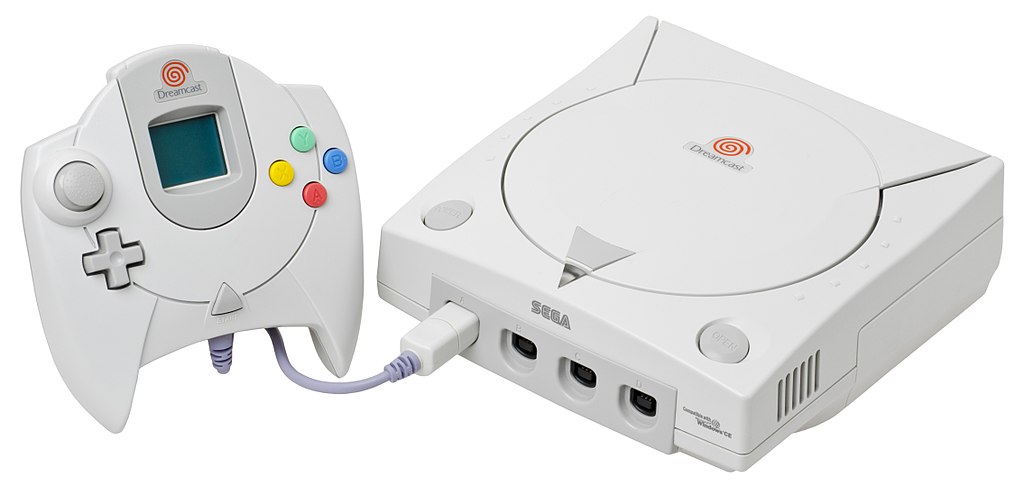British-American Executive Peter Moore has a long storied history in the video games industry. His time at Sega, as president of Sega of America, and at Microsoft, as Corporate Vice-President of Microsoft’s Interactive Entertainment Business division, make him an invaluable source of history, and information on the industry.

What has always been more fascinating to me, has been Sega’s demise as a console manufacturer, and the short lived, but awesome Dreamcast era.
Sega’s ruin was brought about by a series of bad business decisions that were set in motion long before Peter Moore entered the company, but it is interesting to get to read some of his anecdotes, and retellings of how things went down when he used to work for the Japanese Company.
One of the most interesting tid-bits of information that have come out to light in recent interviews, is Moore’s final altercation with Sonic’s Creator Yuji Naka.
Moore, convinced that the game’s industry was leaving Sega behind, prepared a video presentation of gamers voicing their opinion of Sega as a brand. The video was shot in the months after the company turned into a software only business after pulling the plug on the Dreamcast.
Games like Grand Theft Auto 3, had established a clear trend that the industry was maturing, and Moore was conscious that if Sega was to succeed as a software company, a change in the thought of process of the Japanese decision makers at Sega was needed.
So, Moore flew out to Japan, and had a meeting with Sega executives, some which were iconic names in the industry at the time like Yuji Naka (Sonic), and Yu Suzuki (Shenmue, Virtua Fighter).
According to an interview with Glixel, later summarized by Polygon.com, Moore took his video to the meeting room, and showed the Sega executives a small sample of what western 18-19 year olds thought about the company at that time.
The young adults’ comments on the brand were rough. They described Sega as the “Grandad” according to Moore, that “Used to be cool, but even he can’t remember why anymore.”
Needless to say, the Sega executives weren’t happy, in fact, they got quite angry. Their anger was not necessarily directed at the teens, but at Moore, for what they saw as a staged video prepared by the executive to insult them in order to drive his point across.
Yuji Naka, Naka-san, maker of Sonic, is in the room. Now, he and I have a love/hate relationship on a good day. And we show him this, and it’s subtitled in Japanese, and when it comes to that piece he just [slams his hand on the table], ‘This is ridiculous. You have made them say this. Sega is the great brand, nobody would ever say this, you have falsified!’ He just gets in my face. So I said to the translator, ‘Tell him to fuck off.’ And the poor guy looks at me and says, ‘There’s no expression in Japanese.’ I said, ‘I know there is.’ And that was it. That was the last time I ever set foot in there. – Peter Moore
This meeting would prove to be the final nail on Sega’s relationship with Moore. Moore was (in my opinion rightfully) convinced that Sega was falling behind he times, as both Naka and Suzuki were holding the company back.
Moore was proven right eventually, as he pointed to Yakuza being a massive success for Sega.
“I said that we’ve got to get content that is mature. It’s ironic to me that one of their best-selling games, subsequent to all of that, is now Yakuza.”- Peter Moore
That fateful meeting took place on December 2002, by mid to late January 2003, Moore was out of Sega. He joined Microsoft in that same month.
Peter Moore oversaw much of the glory days of Microsoft as a console manufacturer, and had a major part to play on the launch of the Xbox 360 (Microsoft most successful console to date).
Considering how things turned out, Moore was one of the positive forces behind the Dreamcast, and it is a system he still feels proud about. His comments on a recent “20 Anniversary” Dreamcast video, clearly demonstrate his passion for the ill fated console:
“I think what we did is this great little device kicked off what is now a $140 billion industry, which is primarily based on being connected and online. This baby was the first non-computer that could access the internet.” – Peter Moore
More is a polarizing figure to some Sega fans, some blame him for the demise of the Dreamcast. That take is a largely misguided one. As I stated before, Sega’s financial struggles had placed them on a deep, practically unclimbable hole years before Moore arrived at the company.
Moore was responsible for pulling the plug on the Dreamcast, but he was working with numbers, and targets sent by Sega of Japan. His priority by 2001 was to save Sega, even if it meant sending the Dreamcast to an early grave.
We had a tremendous 18 months. Dreamcast was on fire – we really thought that we could do it. But then we had a target from Japan that said we had to make x hundreds of millions of dollars by the holiday season and shift x millions of units of hardware, otherwise we just couldn’t sustain the business. So on January 31st, 2001, we said Sega is leaving hardware. We were selling 50,000 units a day, then 60,000, then 100,000, but it was just not going to be enough to get the critical mass to take on the launch of PS2. Somehow I got to make that call, not the Japanese. I had to fire a lot of people; it was not a pleasant day.- Peter Moore (source: Wikipedia)
To close things on his verbally violent meeting with Naka, and Suzuki, it is important to remember that regardless of how good Shenmue was, it was an utter commercial failure.

The game sold 1.2 million units, but it cost 70 million dollars to make, and it couldn’t recoup the investment. Grand Theft Auto 3 arrived a short time later, with less impressive visuals, and unpolished gameplay mechanics, but its violent -open world nature – drove the game to astronomical success.
Peter Moore, most likely tried to drive that point home to Sega, and it lead to the violent verbal exchange. In the end, Moore went on to do bigger and better things at Microsoft, and other companies. He remains one of the more charismatic individuals in the industry, and one thing that cannot be denied is his undying love for the Dreamcast console.
